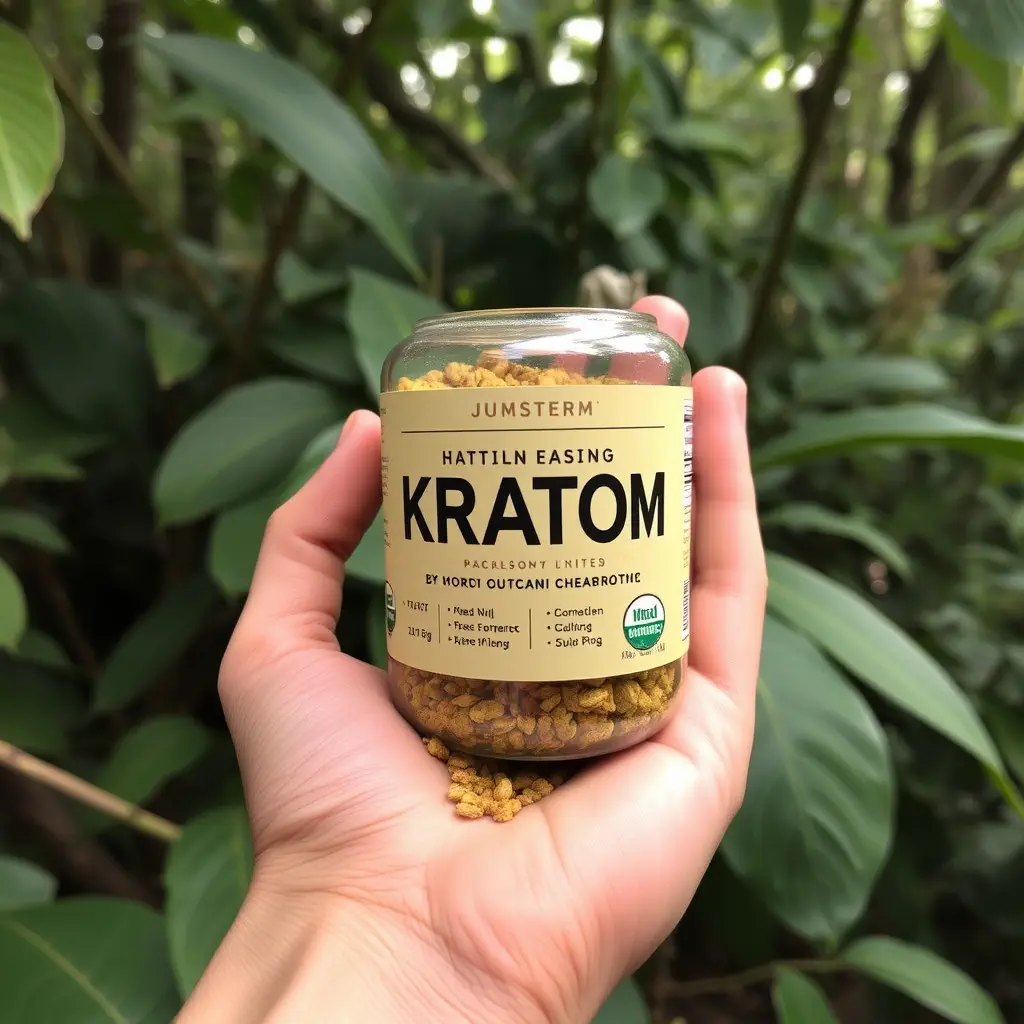Kratom, a plant-based substance from Southeast Asia, is being explored as an alternative aid in addiction treatment, particularly for managing opioid withdrawal and pain relief. Its compounds, mitragynine and 7-hydroxymitragynine, offer potential benefits but also come with concerns over abuse and dependency. Mental health professionals are cautiously considering its role in treatment plans, emphasizing the need for individualized assessments and comprehensive support that includes behavioral therapy and peer support groups. The integration of kratom into addiction treatment must be done carefully, weighing the evidence from ongoing research, which points to both the substance's promise and its potential risks. As legal statuses and purity levels vary, healthcare providers are closely monitoring its use within a balanced treatment strategy that combines evidence-based practices with holistic care, aiming for effective recovery outcomes for individuals dealing with addiction. The focus is on delivering personalized, informed, and client-centered care that addresses both the physical and psychological aspects of substance abuse, leveraging the latest kratom research to enhance addiction treatment strategies.
Exploring the intersection of mental health counseling and alternative treatments, this article delves into the multifaceted approach of addiction treatment with kratom. It provides an in-depth examination of Kratom’s potential role, assesses its efficacy and safety within recovery frameworks, and discusses how it can be harmoniously integrated into a comprehensive mental health treatment plan. Join us as we navigate the complexities surrounding this emerging therapy in the realm of substance abuse recovery.
- Understanding Kratom's Role in Addiction Treatment within Mental Health Counseling
- Assessing the Efficacy and Safety of Kratom in Substance Abuse Recovery
- Integrating Kratom into a Holistic Mental Health and Addiction Treatment Plan
Understanding Kratom's Role in Addiction Treatment within Mental Health Counseling
Kratom, a plant from Southeast Asia, has garnered attention in the realm of addiction treatment, particularly for those struggling with opioid dependence. In mental health counseling, understanding kratom’s role involves recognizing its complex effects on the brain and body. Mitragynine and 7-hydroxymitragynine, the primary alkaloids in kratom, can provide pain relief and reduce withdrawal symptoms, making it a potential tool in addiction treatment protocols. However, its use is not without controversy; while some individuals report positive outcomes, others caution against its potential for abuse and dependence. Mental health professionals must carefully evaluate each client’s unique circumstances, considering the therapeutic potential of kratom alongside the need for comprehensive support, including behavioral therapy and support groups. The integration of kratom within addiction treatment with kratom must be approached with caution, guided by empirical evidence and best practices in mental health counseling to ensure client safety and effective recovery outcomes. As research continues to evolve, mental health counselors are tasked with staying informed on the latest findings to provide informed guidance to those seeking help for substance use disorders.
Assessing the Efficacy and Safety of Kratom in Substance Abuse Recovery
Kratom, a plant from Southeast Asia, has garnered attention in the realm of addiction treatment, particularly for individuals in substance abuse recovery. Research into its efficacy and safety is ongoing, as preliminary studies suggest that kratom may play a role in managing withdrawal symptoms and cravings associated with opioid addiction. The alkaloids present in kratom leaves, namely mitragynine and 7-hydroxymitragynine, are thought to be responsible for its potential therapeutic effects. However, the use of kratom as an additive or substitute in treatment programs must be approached with caution due to its psychoactive properties and the risk of developing a dependency on it.
The assessment of kratom’s efficacy and safety in addiction treatment is complex and requires careful consideration of various factors, including dosage, frequency of use, and individual health profiles. Mental health counselors working with individuals in recovery must stay informed about the evolving research on kratom to provide evidence-based guidance. It is crucial to weigh the potential benefits against the risks, as kratom’s legal status varies by jurisdiction and its purity can be inconsistent. As such, any application of kratom within addiction treatment should be done under medical supervision, with a comprehensive approach that integrates evidence-based practices and holistic care for sustainable recovery outcomes.
Integrating Kratom into a Holistic Mental Health and Addiction Treatment Plan
Kratom, a plant from Southeast Asia, has garnered attention in the realm of mental health and addiction treatment due to its potential therapeutic properties. Proponents argue that kratom can be integrated into a holistic treatment plan for substance use disorders, offering an alternative to traditional medications with fewer side effects. For individuals grappling with addiction, kratom may provide relief from withdrawal symptoms and a path toward recovery. However, it’s crucial to approach its inclusion judiciously within a comprehensive mental health strategy, considering the regulatory status of kratom varies by jurisdiction and ongoing research continues to explore its efficacy and safety. Mental health professionals should consider the role of kratom as part of a multifaceted treatment approach that includes therapy, support groups, lifestyle modifications, and possibly pharmacotherapy, ensuring a personalized and well-rounded addiction treatment plan tailored to each patient’s unique needs. This integrative method aims to address not just the physiological aspects of addiction but also the psychological and emotional factors, promoting overall well-being and long-term sobriety.
In conclusion, mental health counseling plays a pivotal role in addiction treatment, including the consideration of alternatives like kratom. The article has examined the multifaceted nature of integrating kratom into holistic treatment plans, weighing its efficacy and safety in substance abuse recovery. It is clear that while kratom may hold potential for aiding in addiction treatment with kratom, it is imperative to approach its use with caution, informed by ongoing research and clinical evidence. As such, mental health professionals are encouraged to explore this treatment modality judiciously within the framework of comprehensive recovery strategies. The future of mental health counseling in addressing substance abuse will likely involve a nuanced understanding of both traditional and emerging therapies, ensuring that those seeking help receive personalized care tailored to their unique needs.






